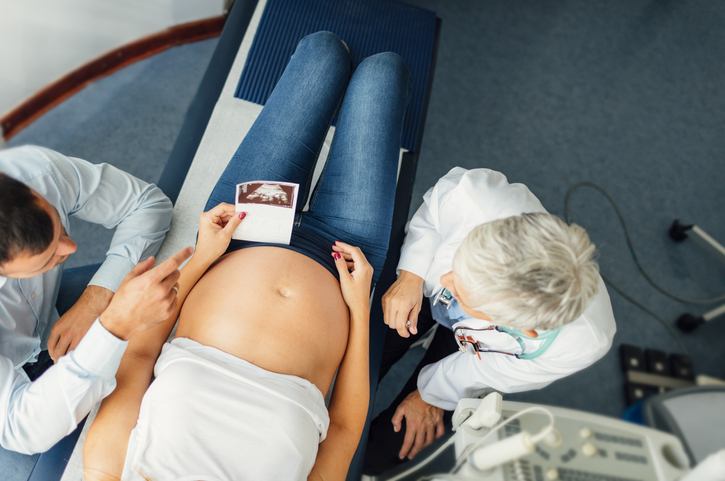As if getting pregnant wasn’t complicated enough, many women trying to conceive are also experiencing Polycystic Ovary Syndrome, aka PCOS, which can make it much harder. If you are wondering about PCOS and pregnancy, here’s everything you need to know about how to get pregnant with PCOS.
What is Polycystic Ovary Syndrome?
Simply put, Polycystic Ovary Syndrome is a condition that affects the balance of hormones in women ages 18 to 44, roughly 8 to 10 percent of women of reproductive age. Women with PCOS often develop small, fluid-filled cysts on their ovaries (hence the name), which are not dangerous but lead to higher levels of male hormones in the body. This hormonal imbalance will affect your menstrual cycle (periods may be heavy, irregular or absent), potentially making getting pregnant with PCOS difficult.
What are the signs of PCOS?
If you have PCOS, you may experience some or all of the following symptoms: acne, weight gain and/or difficulty losing weight, high cholesterol or high blood pressure, insulin resistance and circulatory problems, hair loss and/or increased body or facial hair, skin tags (on neck or armpits), irregular or absent periods, pelvic pain, depression/anxiety, sleep apnea, or difficulty conceiving.
How is PCOS diagnosed?
There is no specific diagnosis for PCOS, but your healthcare provider may perform a series of blood tests, a physical and a pelvic exam, and also use ultrasound pictures to detect abnormalities in the ovaries.
How is PCOS treated?
Unfortunately, PCOS cannot be cured, but it is definitely worth seeking treatment to prevent more serious health problems such as diabetes and heart disease. Doctors agree that a healthy lifestyle, including quitting smoking, and heart-healthy diet and exercise for weight maintenance are key factors in treating PCOS. Often, your doctor will put you on birth control pills to regulate your hormones, but if you have PCOS and pregnancy is on your radar, you may instead be prescribed fertility medications. Occasionally, your doctor may suggest laparoscopic surgery, using a small electric current to damage a tiny section of the ovary in order to decrease the abundance of male hormones, thereby increasing ovulation. However, this is not a permanent solution (symptoms will return after a few months), and you may risk forming scar tissue on your ovaries.
Is it possible to get pregnant with PCOS?
Getting pregnant with PCOS can be difficult, but it is possible with the help of fertility treatments. The younger you are (under 35), the better your chances and more treatment options.
How does PCOS affect pregnancy?
Due to abnormal hormone levels with PCOS, many women do not properly ovulate and experience infertility when their eggs do not develop properly. As a result, many pregnant women with PCOS have an increased risk of miscarriage, pregnancy-induced hypertension, gestational diabetes, and premature delivery.
How to get pregnant with PCOS
If you have PCOS and are having trouble getting pregnant, first check with your doctor or fertility specialist that no other fertility problems are present. If PCOS and fertility are an issue, there are many medications that a fertility specialist can prescribe, from Clomid and Injectable Gonadotropins to In vitro fertilization (IVF), all of which will help increase ovulation and make it easier for you to get pregnant with PCOS. Keep in mind that there are many cases in which fertility drugs can result in multiple pregnancies, so weigh the risks of becoming pregnant and having a PCOS diagnosis.
Struggling with PCOS and pregnancy?
To find a specialist or join a PCOS support group, check out the PCOS Awareness Association.
More about TTC
6 Healthy Habits To Start Even Before You TTC








